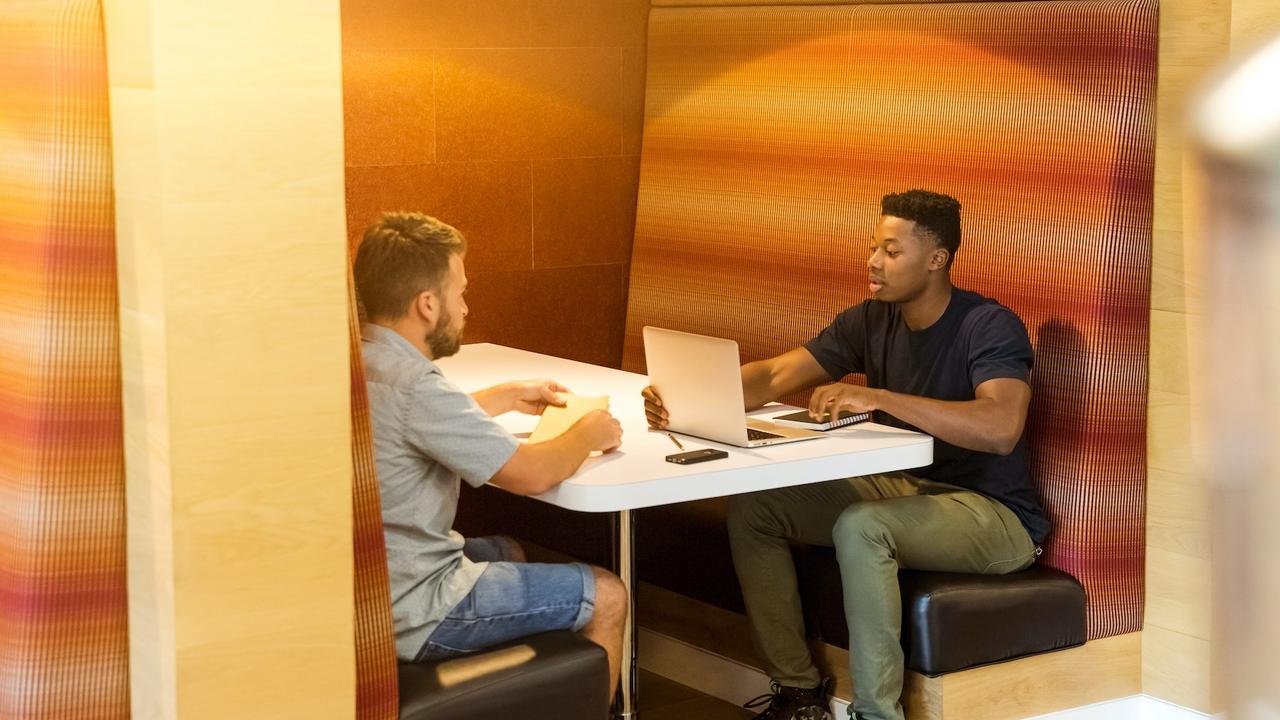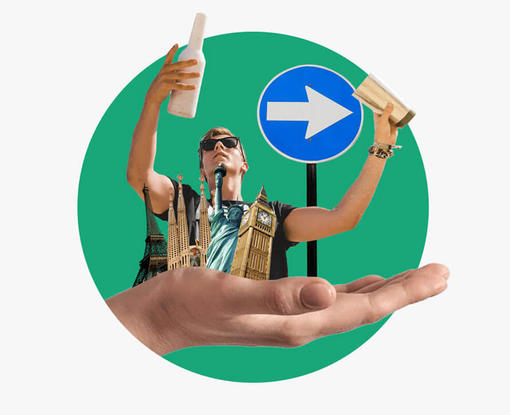Congrats! If you’re reading this article you’ve probably landed an interview to become a bartender. Your prospective employer already knows a bit about you from your bartender CV, but this is your chance to make a first impression that sticks.
The best way to ensure it goes smoothly is to learn the most popular bartender interview questions and be prepared to answer them. Let’s jump in…
General questions
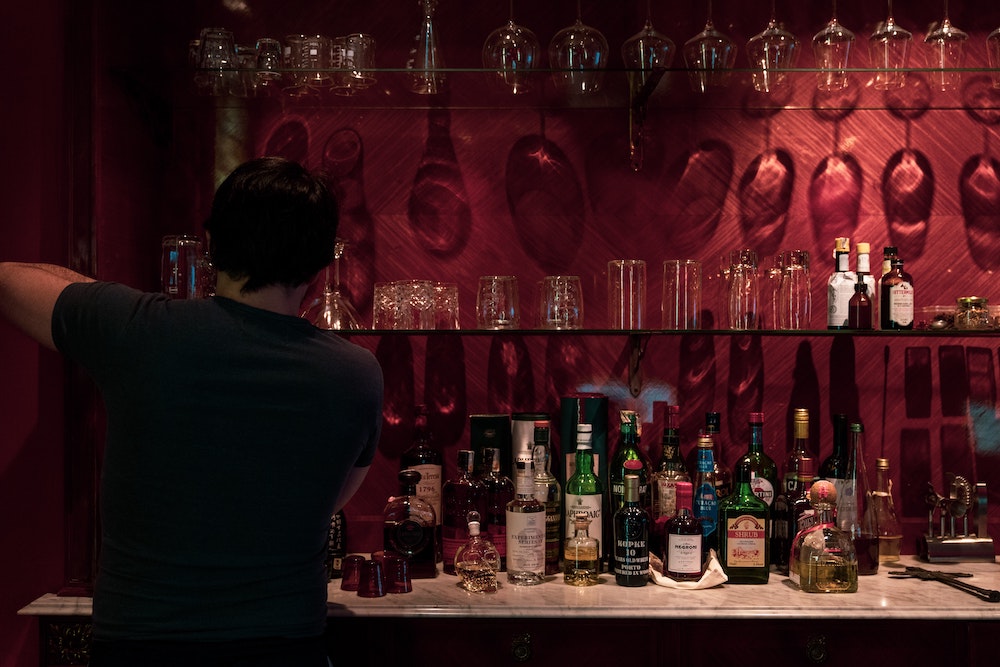
These are those common questions relating to about experience and background that you’ve heard a million times in interviews. Their primary purpose is for the employer to get to know you, get a feel of your personality, and understand your reason for applying.
Here are a few example questions...
Why are you interested in this position?
The first question you might be hit with in a bartender interview. Formulate the perfect answer by #1 researching the bar or company, #2 talking about how the job fits with your career goals, and #3 connecting the workplace culture to your interests.
Tell me a bit about your bartending experience.
Here’s where you can discuss the previous bars you’ve worked at (if any) and the positions you’ve held (i.e. if you’ve been a barback (link article here) in the past, or if you’ve worked as a head bartender, etc).
If you don’t have bartender experience, you can still talk about similar roles you’ve held, especially if they are related to the hospitality industry.
What are your strengths and weaknesses?
A typical question you should be readily prepared to answer. Some of the most essential skills for a bartender include teamwork, organization, multitasking, people skills, flexibility and memory. Keep these in mind when mentioning your strengths.
As for weaknesses, avoid the typical response “I’m a perfectionist.” Choose a real weakness that won’t prevent you from succeeding in your role as a bartender. Be sure to mention how you are actively trying to improve in this area.
How do you feel about working in a team?
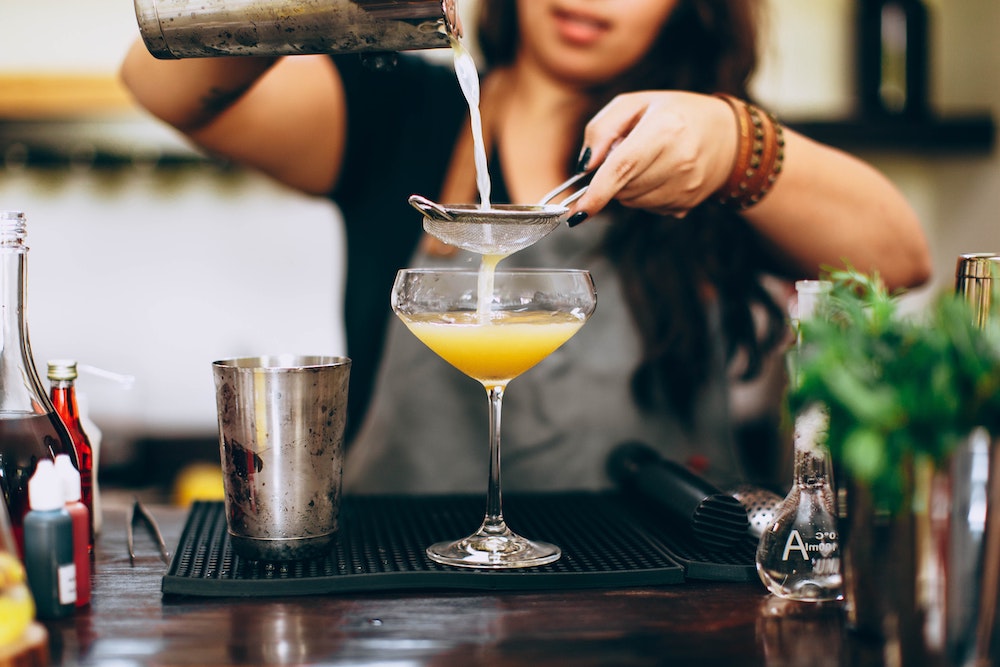
Being a team player is one of the most important aspects to bartending. Throughout any given shift you’ll need to communicate and work with those around you in an effective way.
Talk about how the contribution of different perspectives and personalities can actually improve your work, not hinder it. Show that you can be a valuable member of a bar team no matter who you’re collaborating with.
What sets you apart from other candidates?
Since you’ll be competing against other prospective bartenders for the job, your interviewer will want to know: what makes you special?
To nail this question, write down a few traits that you think separate you from the wider bartending crowd. Maybe you have an incredible memory that allows you to get dozens of drink orders right every time.
Perhaps your killer flair moves make you the most entertaining cocktail shaker around. Combining social skills with technical bartender skills is always a safe bet.
Bartending specific questions
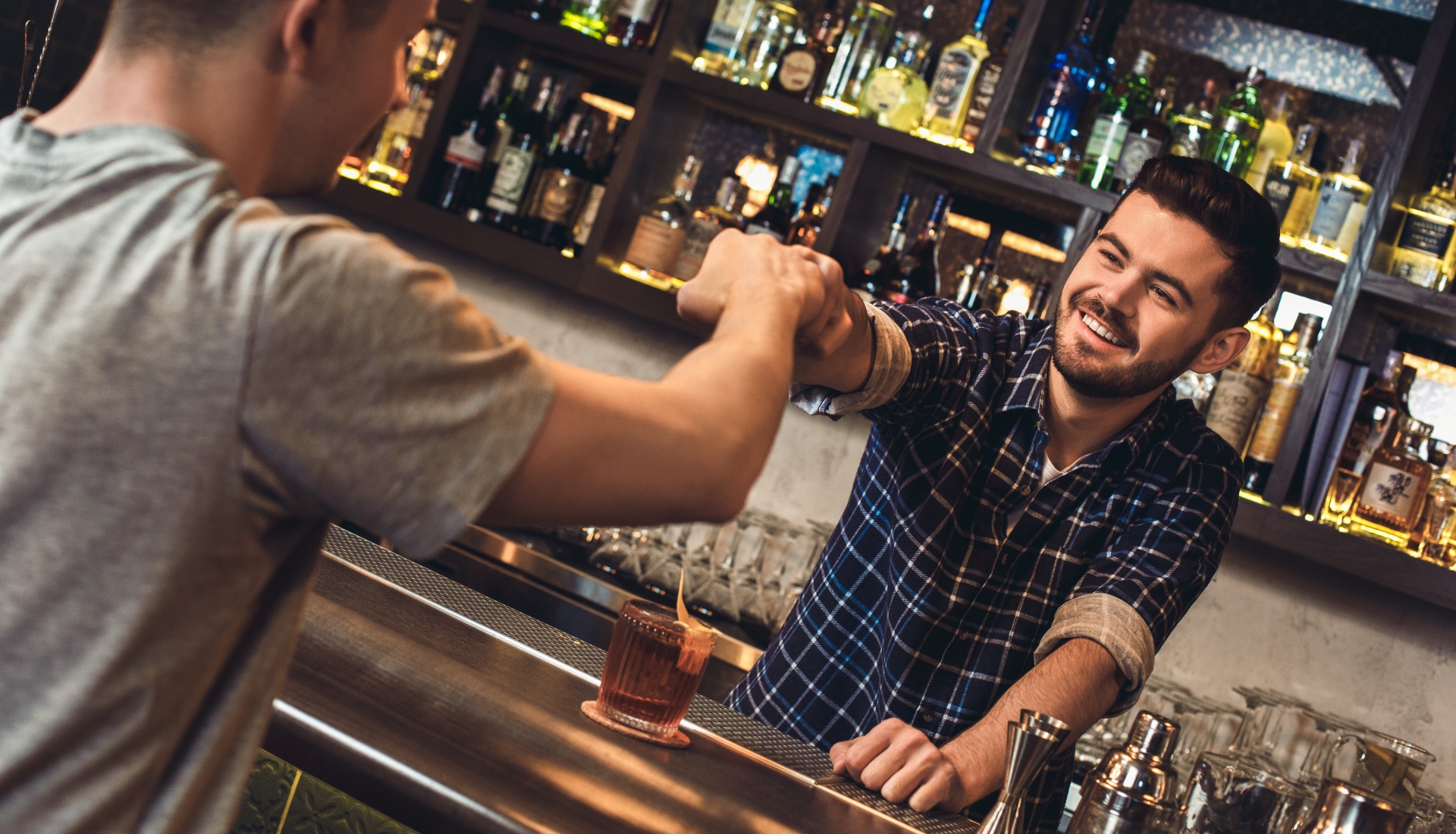
After you’ve broken the ice with your interviewer and answered the first set of questions, they’ll likely move on to more in-depth questions about bartending.
What are the main responsibilities of a bartender?
Here your interviewer is mainly looking to see that you understand what will be expected of you if you’re hired in their bar. If you’ve worked in the industry before, this will be an easy one. If not, have a look at a bartender job description to find out what's hot and what's not.
Walk me through how you interact with a customer.
Being a bartender is all about chatting with customers and giving them the best service experience possible.
First things first, a friendly greeting is always a must. Lighthearted conversation is a plus, too (“What type of drink are you looking for” “Is this your first time here?” “Have you heard about our specials?”)
Afterwards, show that you have knowledge of your products and give suggestions for cocktails based on your customers’ interests. Lastly, you can always upsell certain drinks, just don’t be too pushy.
What do you enjoy most about bartending?
To answer this question, ask yourself, "why become a bartender". What makes this particular career a fulfilling one for you, personally? Your interviewer wants to know they’re hiring someone who is not only equipped to do the job, but also passionate.
What is your favourite drink to make and why?
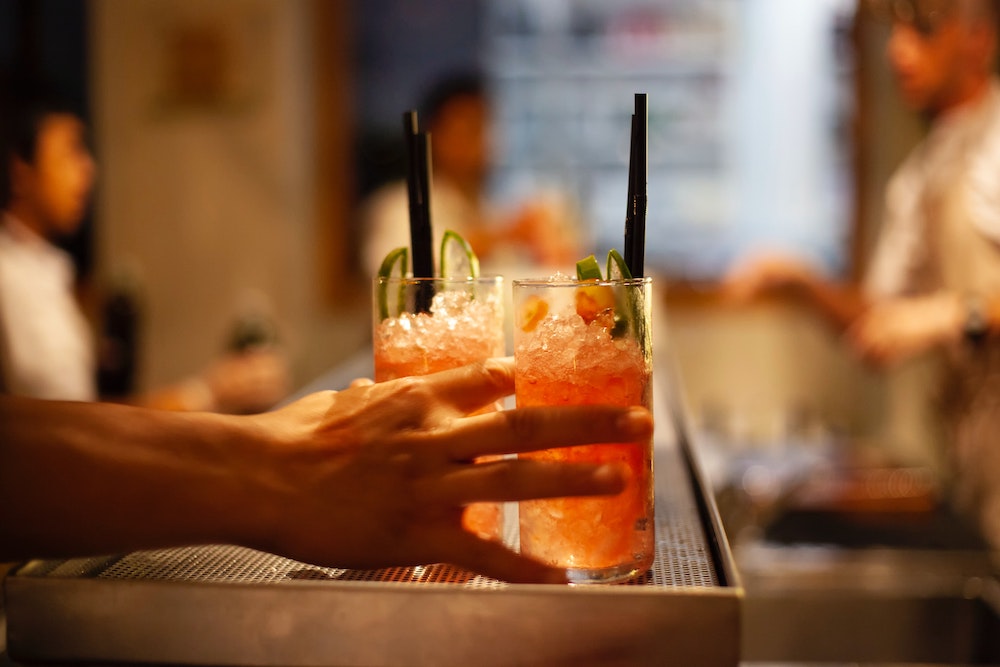
A fun question to answer as its one of those that doesn’t have a wrong answer. Maybe mention which ingredients are in your favourite drink so that your interviewer can see you know your stuff. Then explain why you’d choose certain cocktail recipes over others and be specific. Who knows– maybe you and your interviewer share drink preferences!
What would you consider the most essential bartender tools?
Another question that is posed so that employers can see how much bartenders know about the bar beyond just spirits and mixers.
There’s a long list of bar equipment, such as a jigger, citrus press, muddle, shaker, and bar spoon, so read up if you aren’t familiar with them. If you really want to impress, have a look at some must-have tools the best bartenders cant go without.
Looking for a bit on inspiration? Check out our bartending techniques page and familiarise yourself with the basics!
How do you make a ________?
There’s a chance your interviewer may ask a very bartending specific question – how to make a certain drink. But don’t panic! If you have bartending experience, this shouldn’t be a tricky one to answer. If not, research ahead of time to be sure you know how to make at least a few cocktails and their ingredients.
How do you deal with multiple orders effectively?
Multitasking is a huge part of being successful in the bartending world, so in your bartender interview there’s a high chance a question regarding this skill will come up. Your interviewer is looking for someone who won’t be intimidated by juggling multiple tasks at the same time.
Answer with confidence and give a short example of a time you delivered great results even while under pressure.
At this point in the interview you’ve discussed your experience and some specific questions that pertain to bartending and related skills. Now is your opportunity to show that you can take anything that is thrown at you behind the bar.
Explain how you’ve dealt with past circumstances or how you would respond if a certain situation were to arise. Using the classic “STAR” method (situation, task, action, result) is a great way to ensure you address every part of the situation in your answer.
Tell me about a time when you failed at work. How did you handle it?
This question is asked with one goal in mind: to see how you act when things don’t go your way. To answer, start by describing the situation clearly and take responsibility for the failure. Lastly, don’t forget to mention what you learned and how you plan to improve for the future.
How would you stop serving someone that has clearly had too much to drink?

This is a situation that is bound to arise at some point so it’s important to have a plan in place. Although there may be multiple ways of handling it as a bartender, a solid answer is to say you would politely explain to the customer that you can no longer keep serving them per the house rules of the bar.
Of course, mention that you would retain a respectful and calm demeanour at all times and never embarrass the customer or draw attention to the situation.
How would you deal with an underage customer who you believe is using a fake I.D.?
Similarly to the above, your interviewer will want to know how you would deal with difficult customers or those you believe are breaking the rules/laws. This question is also testing your knowledge of alcohol compliance as bars can actually be sued or closed for serving underage customers.
Explain that you’d analyse the situation and ask for a manager’s assistance if you were unsure. On the other hand, if you were positive that the ID was fake and your manager was too busy to help, politely decline service and keep a record of the incident on hand. The best bartenders are trained to spot fakes, so be sure you leave your interviewer confident you would do the same.
A drink you’re about to serve accidentally falls to the ground. What do you do?
This question is poised to test your ability to stay calm in stressful situations as well as bar cleanliness. Explain that you’d quickly sweep and mop the floor, removing all glass pieces and shards. After you’ve cleaned the spill, notify the customer that their drink will take a few more minutes and apologise for any inconvenience.
What would you do if you didn’t have all the necessary spirits or mixers to make a customer’s drink?
It’s been a busy night at the bar and your stock is running low. What do you do? Your interviewer is looking for someone who is not only a problem solver but also a creative thinker.
Firstly, say you’d apologise to the customer as you’ve run out of some necessary ingredients. Then you might find some substitutes, improvising to make a similar drink that matches the flavour of what the customer initially ordered.
What to wear to a bartender interview
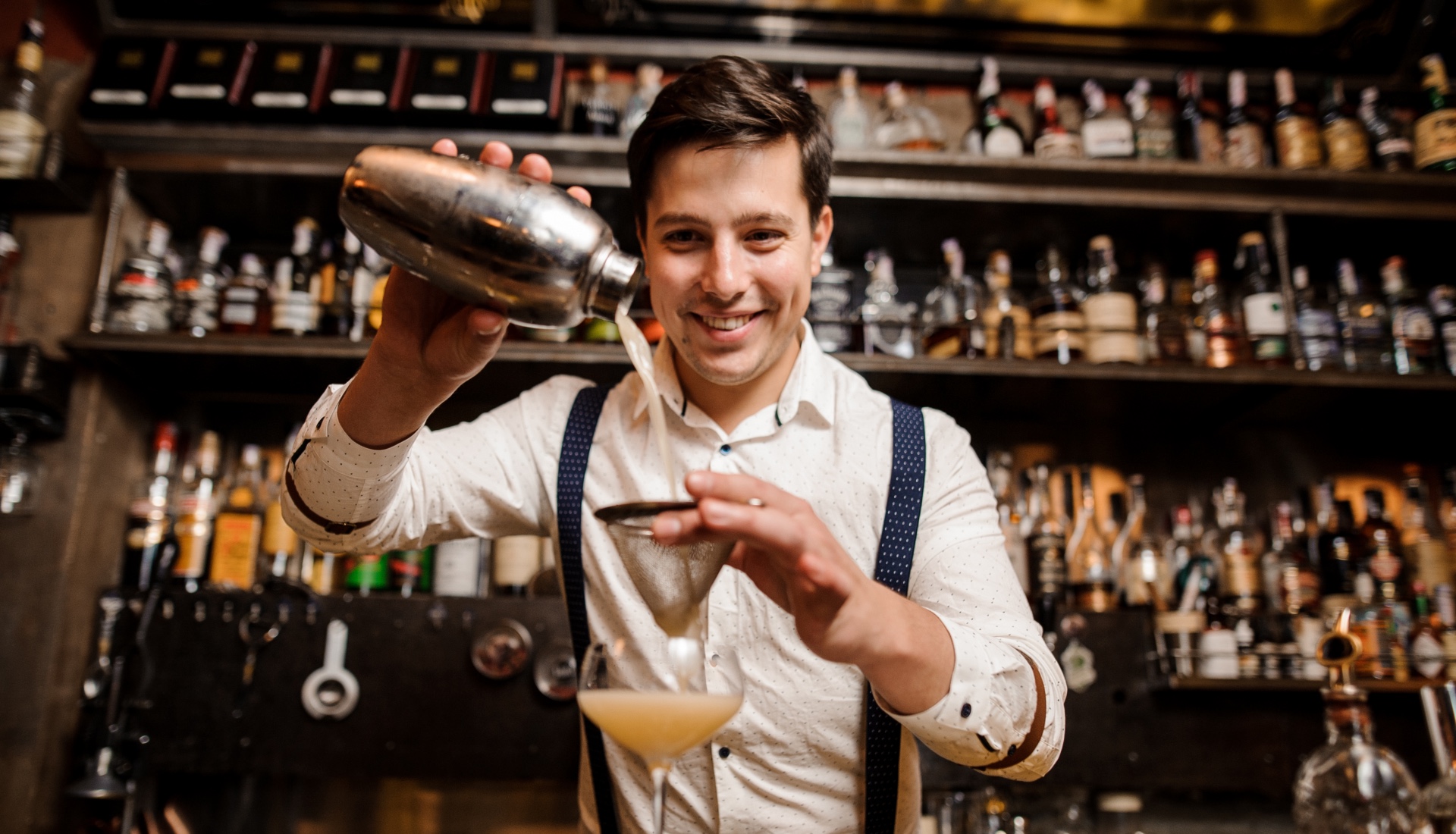
We recommend following the customs of the place you’re interviewing at. For example, if its an upscale bar where the bartender outfits are more formal, do the same for your interview!
On the other hand, a smart casual approach is perfectly acceptable for a bar whose culture and look is more laid back. When thinking of what to wear to a bartender interview, don’t stress! A good rule of thumb is to always dress for the part by following the employer’s lead.
Set yourself up for success!
If you follow these tips and tricks on how to answer common bartender interview questions, you’ll be feeling confident and ready for anything your interviewer throws at you.
Find out how to become a bartender with our 8 top tips. Getting into the profession has never been so clear!
Another way to set yourself up for success is by enrolling in our international bartender course where you’ll learn the equivalent of 6 months of bartender knowledge in just 4 weeks.
